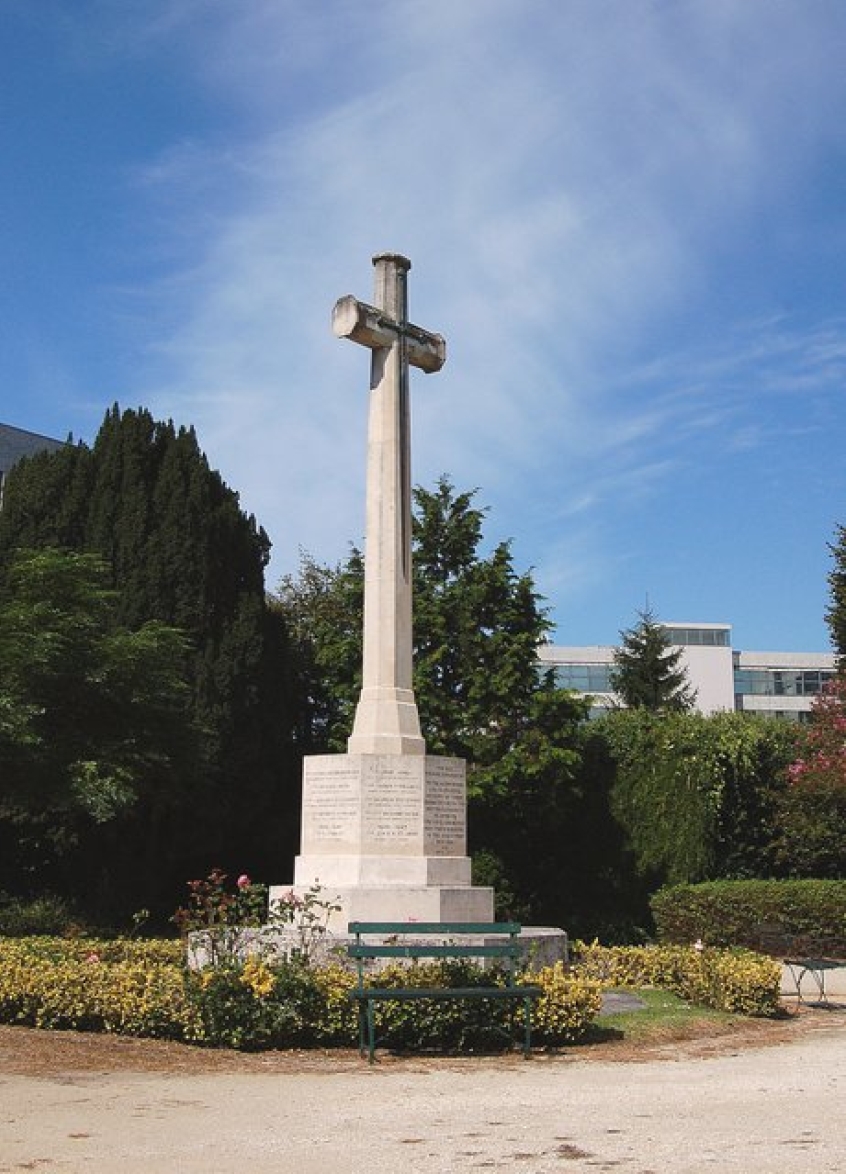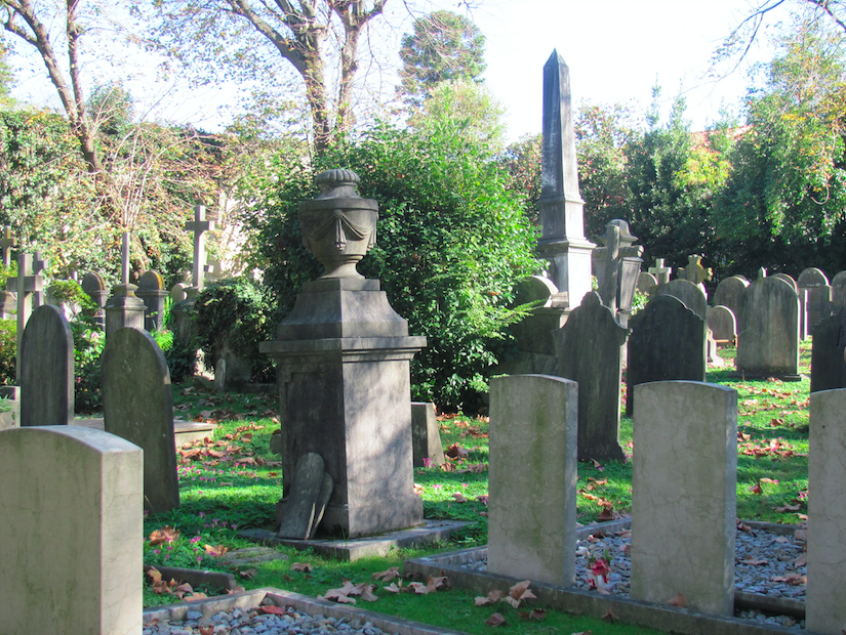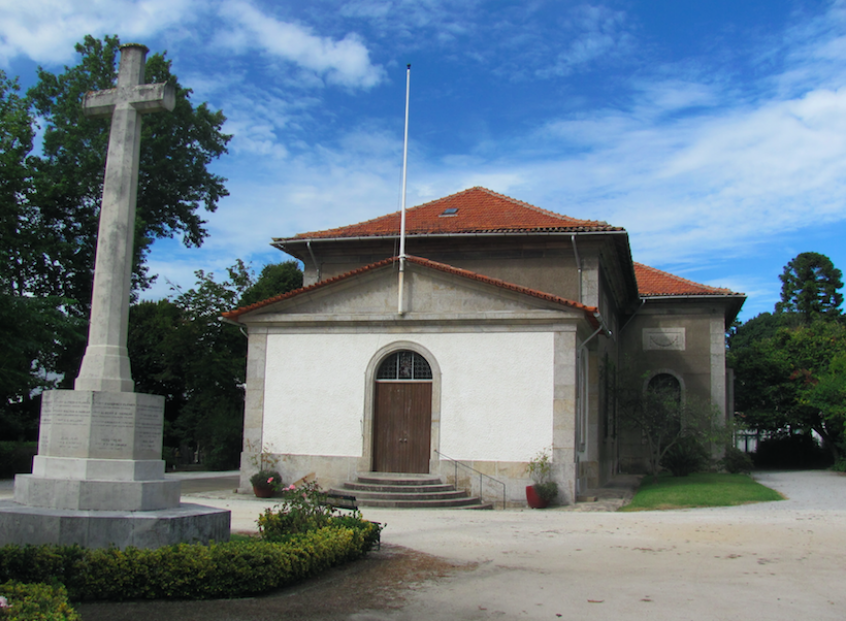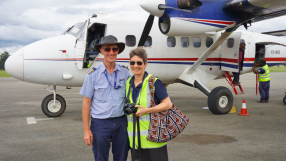The hymn The day Thou gavest, Lord, is ended by John Ellerton ushers in images of constant prayer at all hours across the world, with its lines, 'The sun that bids us rest is waking / Our brethren 'neath the western sky / And hour by hour fresh lips are making / Thy wondrous doings heard on high'.
Portugal – whose alliance with Britain, ratified at the Treaty of Windsor in 1386, is the oldest such alliance in the world that is still in force – is not, in fact, in a different time zone.
But sitting in the pews during the Sunday Communion service at the Anglican Church of St James in Porto yesterday, you could not help but marvel at how small corners of Britain like this – the early 19<sup>th century church, its extensive British cemetery and a beautiful war memorial – are scattered all over the globe.

St James's is looking for a new, permanent chaplain, an enviable appointment for any Anglican priest. For now, its 'locum' acting priest is Fr David Houghton, a former vicar in south London who preached authoritatively yesterday on the theme of this, the international week of prayer for Christian unity. Fr Houghton quoted Rowan Williams, the former Archbishop of Canterbury and an 'Anglican hero' as saying that we come to be fed, so that we may feed others. The priest also talked of how we are all united by baptism. Today, he will along with other members of the congregation attend a service for Christian Unity at the cathedral in this coastal city in the north west of this largely Catholic country.
Before the service there was a very warm welcome from the charming, clearly contented community of Brits here – including a kindly-eyed Glaswegian, Annie Baker, who I was later told has quietly conducted missionary work in orphanages in Romania – and after it, a classic Anglo-Portuguese combination of refreshments: coffee and port, the trademark produce of this fine city, cultivated for centuries on the banks of the River Douro.
Indeed, the chaplaincy of Oporto was founded in 1671, when the Rev John Brawlerd, a Church of England priest, was charged by the British merchants of Oporto to provide religious services for the British community as well as education for their children. As the church's website explains: 'At that time the religious atmosphere of Portugal did not allow Protestants to have a fixed place of worship or to worship openly, so services were held in the homes of various members of the community.'
In 1787 the British Consul John Whitehead was able to acquire a piece of land outside the city to be used as a burial ground, with the support of the King of Portugal, with the first burial taking place in around 1790. Today, Consul Whitehead's burial urn stands at the centre of the cemetery, which is the only Protestant burial ground in northern Portugal.

And it was in 1815, shortly after the conclusion of the Peninsular War, that the British community was given permission to build a proper place of worship on the land.
From the website: 'The church building was complete by 1818 (but was not formally dedicated and accorded the name of St. James until 1843, when the then Bishop of Gibraltar, George Tomlinson, came to Oporto to consecrate the edifice.) Considerable restrictions were imposed on the British community by the Portuguese authorities as to how the church could be constructed. It could not have a spire, cross, or bell. In fact the building was designed to look something like a meeting hall (from the exterior). There is often a misapprehension that the high wall surrounding the property was built to hide the church building from the street, but in fact the wall predates the church, having been erected considerably earlier to surround and protect the entire land acquired by the community, which of course includes the cemetery.'
The war memorial records the names of members of the British community of Oporto who lost their lives in the two great wars of the 20th century.
A special section of the cemetery is maintained by the Commonwealth War Graves Commission for the six graves of the eleven airmen lost in British aircraft flying through Portuguese airspace during World War II. Of the airmen, seven were from the RAF, one was from the Royal Australian Air Force, and three were members of the Royal Canadian Air Force.
As Fr Houghton, who baptised me decades ago in Clapham, now tells Christian Today: 'Driving into the "compound" in the centre of Porto that is the home of the Anglican Church of St James and the British cemetery with the mortal remains of those who (mainly) worked in the wine trade here from the 17th century, there is that temptation to see it all as history. But tonight I will be joining Christians of all traditions in the Cathedral for a service of prayer reminding us all that we are part of One Body of Christ in this city and to all of us falls the task of working under grace to establish the Kingdom of God and bear Good News.
'And there is, perhaps, something striking to realise that is was hard headed merchants who themselves saw a need for churches in foreign parts, part of a structure of business and what we would now call "social needs". But that phrase hardly rises to the occasion.'

Striking indeed, and comforting to know that, all around the world in this week of prayer for Christian unity, those 'fresh lips are making / Thy wondrous doings heard on high'.













